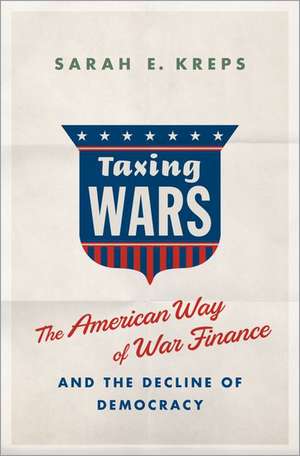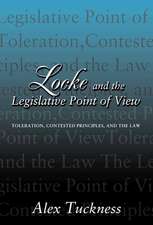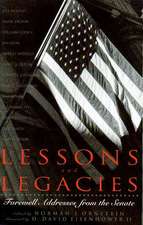Taxing Wars: The American Way of War Finance and the Decline of Democracy
Autor Sarah Krepsen Limba Engleză Hardback – 26 iul 2018
Preț: 309.00 lei
Nou
Puncte Express: 464
Preț estimativ în valută:
59.14€ • 61.51$ • 48.82£
59.14€ • 61.51$ • 48.82£
Carte disponibilă
Livrare economică 25 martie-08 aprilie
Preluare comenzi: 021 569.72.76
Specificații
ISBN-13: 9780190865306
ISBN-10: 019086530X
Pagini: 336
Dimensiuni: 163 x 239 x 31 mm
Greutate: 0.54 kg
Editura: Oxford University Press
Colecția OUP USA
Locul publicării:New York, United States
ISBN-10: 019086530X
Pagini: 336
Dimensiuni: 163 x 239 x 31 mm
Greutate: 0.54 kg
Editura: Oxford University Press
Colecția OUP USA
Locul publicării:New York, United States
Recenzii
Funding is, of course, essential to conducting almost any war. And as Sarah E. Kreps, the author of TAXING WARS: The American Way of War Finance and the Decline of Democracy points out, war taxes are an especially American issue . . . [Kreps] concludes that there now exists a broad, quiet political consensus to insulate the American people from the human and financial costs of their wars. This agreement is insidious, she writes, because it has undermined democratic accountability.
Notă biografică
Sarah E. Kreps is an Assistant Professor in the Department of Government at Cornell University. She previously held fellowships at the Belfer Center for Science and International Affairs, Harvard University, and the Miller Center for Public Affairs, University of Virginia. Between 1999-2003, Kreps served as an active duty officer in the United States Air Force. She is the author of Coalitions of Convenience (OUP) and Drones: What Everyone Needs to Know (OUP).
















